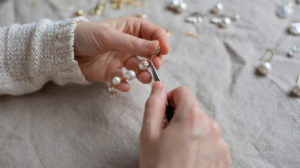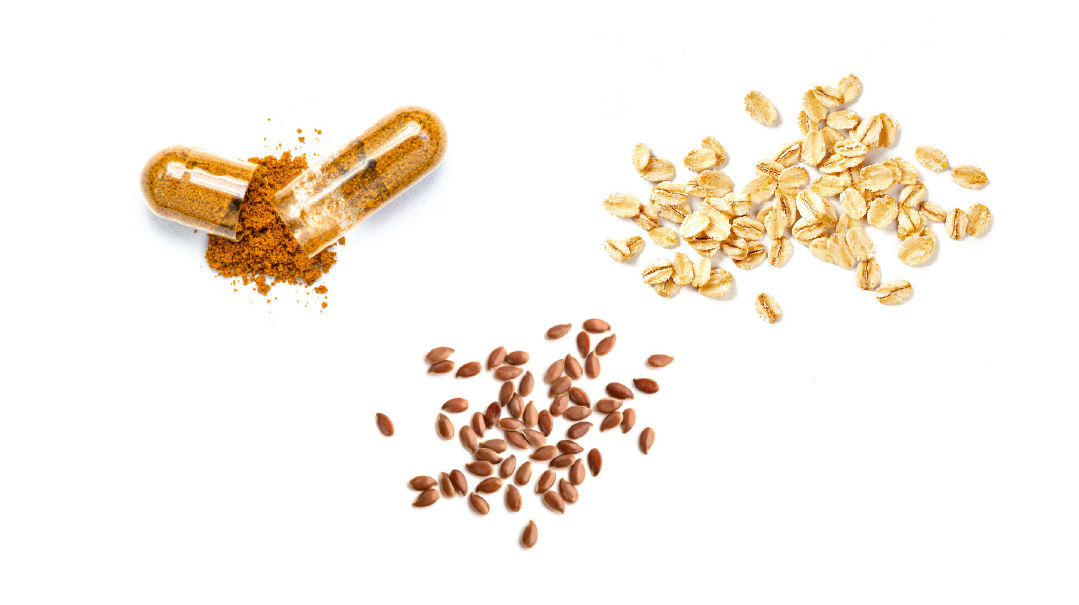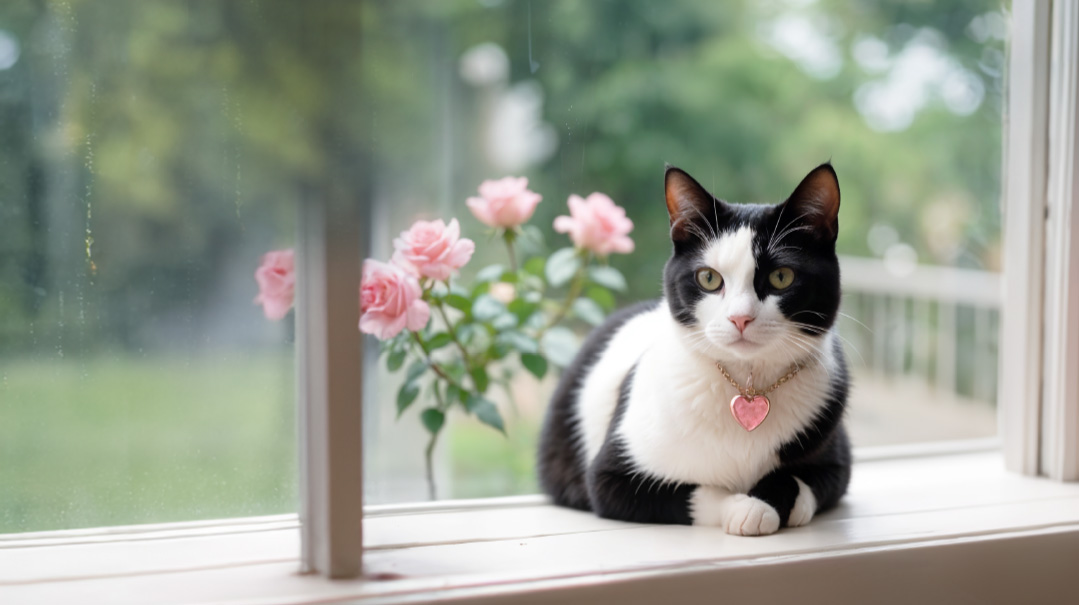The Penthouse: Part 2 of 3
| December 16, 2020Everyone else was moving on. Only her husband was frozen in time

Winter 2007
When the frying pan is soaking and the sputtering flames fill the room with a grayish haze, Chavi sinks into the couch. Dovid leans back in the armchair. “Nice party, no?”
“Yeah.” She nods a little too quickly. “Nice boys.”
He smiles wide. “Right? I told you they’re refreshing.”
Is refreshing a code word for not very serious? There had been seven boys seated around the table as her husband spoke. Her gaze had bounced from the boy who played with the applesauce to the boy on his left who’d studied her ceiling light fixture the entire time. This was the glorious job her husband finally landed?
“Yeah, they’re refreshing. A little less serious than I thought, though.”
“Well, it’s a lighter matzav. But definitely serious. The guys work.”
“Okay… I just hope they appreciate you.” She tries to inject her voice with the right note of concern.
He spreads his hands and laughs, then looks up sharply. “You’re worried they don’t?”
She feels her head starting to throb. “No, no. I’m sure they do. I just want you to be appreciated, that’s all.” She picks up a stray plastic cup. She cannot tell him how her heart is sinking with the realization that he has been sold short, that his position does not adequately reflect his worth.
He stands up and stretches. “You know how the air gets all smoky when the candles fizzle out?” He slides open the window and a gust of fresh air rushes in. It doesn’t help. She already has a full-blown headache.
Three missed calls from Ita.
“What’s going on?”
“Chavi, honest question. But really, really honest?”
“Okaaay,” Chavi offers cautiously.
“My husband’s bochurim are having a siyum next week, and my dining room is too small for 38 boys. Any chance we can use your porch?”
“Gosh! Didn’t realize we were that fancy! Fine with me, just be careful about the noise 'cuz of the neighbors.”
Two weeks later, Ita’s making trips up the stairs with foil pans and Sternos. Chavi’s eyes open wide. “Are you having a wedding on my porch?”
Ita laughs as she kicks aside a sun-bleached Cozy Coupe. “Wow, Chavi, wow! I’m speechless. The view is stunning! Do you own the porch?”
“Well, we have a tiny one off the living room, but the roof belongs to the building. But we put up the railing and made it into a porch, and we’re the only ones who use it.”
Chavi helps Ita unload six pans of hot food. The porch is bathed in navy and gold, three folding tables from the gemach set up resplendently. Thirty-eight bochurim.
Ita gathers the foil covers, then looks around wistfully at the dotted hills and shimmering white buildings.
“Okay, Chavi. I’m not laughing anymore. You live in a penthouse.”
Winter 2008
The seminary girls who occupy Ofer’s second-floor apartment irk the professor to no end, with their shrieks and laughter and slamming doors.
The two newlywed couples who live in the subdivided ground-floor apartment are absorbed in their own newlywedness, and have little to do with the professor. So there’s really no one left to invite to the goodbye party.
But how can they not give the professor a proper send-off after his announcement that he’ll be moving to a senior’s residence in Kfar Saba, near his children?
The crowd is small. Mrs. Garbian is no longer here, Nitza left in a huff to Ramot last year, and they’ve invited Ofer from Beit Hakerem but he hasn’t returned their message. Only Hadas is still around, waiting to sell her apartment for the right price. Chavi asks the two Americans newlyweds to stop in anyway, just for ten minutes.
The professor thanks them profusely, his stiff features mellowing into a tight smile as he sits at the head of the table. He speaks about Yerushalayim, its beauty and splendor, and ends with a quote from Zechariah, perhaps in deference to the religious character of his new neighbors. And then, with a courteous nod, a moving truck, and a paint job two days later, an era has ended.
He doesn’t usually do that, talk while he’s walking up the steps. She hears his animated voice all the way from her living room. He comes in with a distracted wave, deep in conversation.
“Elchonon, you give me a date and it’s on me. Totally on me. B’seder?” He laughs. “Of course!”
Dovid presses end, then looks up. “Sorry. Remember I told you about one of the boys who couldn’t read?” Chavi nods vaguely.
“So I hooked him up with a reading specialist, got his parents on board. Now he’s making a siyum, before he goes home for Pesach.” He breathes out, a tired happy sigh. “He couldn’t read, the guy.”
“Nice. Siyum on what?”
“A small masechta, but for him it’s big. Very big. I told him I’ll take care of it.”
“Oh, wow. Here?” Her brow is furrowed.
He looks at her for a second. “Lav davka here, could be in a place, wherever, we’ll figure it out.”
“Nice.” Chavi nods again distractedly, and goes to flip the schnitzel. “Okay, kids, Tatty’s home. Supper!”
The professor’s apartment is empty; you can hear wind rattling the windows in the eerie silence. No more Beethoven and Bach, no more gravelly voice announcing the six o’clock news. A tall real-estate agent in sandals is there smiling at new clients every week, until one spring day it’s sold to a young Israeli couple.
Miri squeals in delighted Hebrew when Chavi welcomes her with brownies. She offers her an unsolicited tour of the plain, whitewashed apartment as if she were unveiling a luxury condo, then confides that only because her in-laws are wealthy was she able to buy in Yerushalayim.
“You probably paid much less than 350K, right?” Her eyes are bright, innocent.
Chavi’s eyebrows go up. From 165K to 350K… did that really happen in just eight years?
“Well, of course. Do you know that when I bought here I was practically the only frum person in the building?”
Miri’s hand flies to her chest. “Really? How did you do that?”
Chavi sighs. “That’s how it was. And I didn’t think it would really ever change.”
“So how did you manage?”
“Well, I used to joke that it was a penthouse. You know, positive thinking.”
“Wow.” Miri shakes her head. “But you’re right. It really is a penthouse, no?”
The bagel shop is full this morning; it’s January, Month of the Visiting Americans. Next to her is a well-groomed woman sitting opposite a young married girl, her Coach wristlet sitting in a pile of sesame seeds. One table over, four seminary girls share a plate of tacos as they alternate reading from their notes.
Chavi takes the Boker Tov special, Chana Rivky orders a salad, and Ita just nurses a cappuccino. What a rare pleasure to be sitting with her friends on a vacation day. And how Paran has changed from those early years. Band falls and snoods and Baby Joggers, Duncan Hines and Skippy and Wise and so, so much English!
At 12:40, they part ways. Gan will be over soon. Chana Rivky jumps into a taxi and Ita and Chavi walk, passing street poles that advertise English-speaking playgroups, US accounting services, and shells in all styles.
When Chavi waves goodbye to Ita and turns into her building, there’s no pang anymore. Her building is full, vibrant, teeming with life. Amy Schipper moved in right before the school year, her kids spilling out her front door in a trail of noise, laughter, and freeze-pop wrappers. And Raizel, with her clipped British accent, recently bought the ground-floor apartment.
The building smells like cholent every Friday, the lobby is full of strollers, and cars no longer drive by on Shabbos.
Ramat Eshkol has transformed.
July 2012
She’s gotten lots of second-hand treasures over the years: an Ikea toy kitchen, a Bosch mixer, and craft supplies for next to nothing. Every summer has brought new moving-sale posters flapping in the breeze, every year has had its turnaround of young couples in Ramat Eshkol. But their departures were painless for Chavi; she’s so far past the young-newlywed stage that she doesn’t relate anymore.
It’s the big moves that hurt; her good friends seeking new horizons abroad after years of living in Yerushalayim. Every goodbye party is a fresh wound.
Chana Rivky is surrounded by neighbors and friends, a blur of Sorotzkin faces, most of them young and fresh-looking. Ita waves to her from across the room; her only ally in the haze of unfamiliar faces. She sits down next to Chavi on the leather couch.
“Gosh, Ita. I feel ooold.”
“I know what you mean.” Ita fingers her oxidized sheitel. “I forgot that some people always look good.” She closes her eyes. “But it’s fine. We know we’re old.”
Chana Rivky walks over and pulls up a chair. “I’m so happy you came.”
Chavi nods emphatically. “Wouldn’t miss it, even though it’s so sad….”
Chana Rivky covers her face. “Don’t make me cry again. My lift just left yesterday… 13 years of my life.” She blinks suddenly. “Oh, Ita, I’m leaving you my food processor, okay?” Somebody calls her, and she gets up to greet more people.
After Chavi has played one of those awkward games and signed Chana Rivky’s album, she walks home, down the Tamir road. Har Chotzvim twinkles ahead. Once upon a time, this was just a small dirt path on a rocky mountain. She remembers walking there with Dovid, a clueless newlywed in a cheap pony sheitel, so proud of her computer job in a real carpeted office.
Chavi waits at the big intersection. Her office building is up ahead, alongside the hi-tech buildings. In 13 years, she has moved from novice, to junior, to senior programmer with benefits. Time goes by, things change. Isn’t that the way it’s meant to be? Chana Rivky’s husband is leaving, opening a yeshivah in Monsey. Ita’s husband is becoming a rav.
And Dovid’s still busy with a handful of weaker bochurim.
She continues walking, cutting through the shortcut to Yam Suf.
She hopes the kids are all asleep. They are. Dovid is sitting on the couch, a sefer perched on the upholstered arm. He looks up. “How was?”
“Sad.” She double locks the door. “Sad.” She picks up her hands in defeat.
“Sad,” he nods gravely. “I hear. Yeah, it’s sad. Your good friend.”
“Yeah.” She doesn’t offer more.
Amy begins. “Hi, everyone. Okay, so we’re here to talk about an elevator.” She pours water and passes it around.
Raizel’s British accent is pronounced, “Look, we’ve just bought our flat, and I haven’t got a clue how we’ll manage the mortgage. So I can’t really consider more expenses now….”
Amy nods kindly. Miri babbles in Hebrew about her in-laws never agreeing.
The new Israeli speaks up. She’s young, but her voice is measured, like she’s been sensible her entire life. Her voice is low and calm. “Look, I think you have to divide the cost according to need. Obviously, those on the higher floors need it more. And we have to check out Tama before we start.”
They look at her, quizzical.
“The new building law, Tama 38? They’re getting permits to add new floors on to some of the buildings in Ramat Eshkol.”
“Yeah, right.” Amy laughs. “I’ll believe it when I see it.”
Chavi steps into her house. The kids are in bed and Dovid is falling asleep at the dining room table. He sits up quickly.
“Meeting wasn’t good?”
She laughs, startled. “Why, I look bothered? No, meeting was good. But the new neighbor said something that made me nervous.”
Dovid looks at her, worried.
“She said something about permits to build up in Ramat Eshkol.”
“Okaaay. And so?”
“And so these buildings might be getting new floors. You know what that means?”
His brow creases, then he sits up, startled.
“Build up? You’re not serious. Does that mean we lose our penthouse?”
Purim 2013
Chavi’s father is sitting at the dining room table, trying to do the daf. Nothing stops him — not the children in costumes making a racket, not the messy table that keeps growing messier, not the door opening and closing.
A tall boy in a glitter bowtie staggers in, bearing a cellophane-wrapped basket.
“Is Rebbi here?”
Dr. Hymowitz smiles politely. “Dovid, looks like you have a visitor.”
“Looks like you have a visitor,” the boy sings, “looks like you have a visitor.” He guffaws. “You think I’m a visitor?! Do you know that I’m Rabbi Bernstein’s son?” He steadies himself on the wall.
Dovid claps him on the back. “A freilichen Purim, Avi.”
“A freilichen, Rebbi.” He puts the large basket down on the table. “This is for you, from us. I chose it myself — pink wafers so your wife should know it’s for her too. Get it? Pink, girls?”
“Where’s the Rebbetzin?” He pushes his way into the kitchen. Chavi puts down the half-sliced onion.
“Rebbetzin, I brought you shalach manos. Special pink wafers for you, Cheetos for the kids, and Cabernet for your husband — the guy said it’s good, not the cheap stuff, yeah?”
Chavi smiles patiently.
“You know why?” He stares straight at Chavi. “Because you’re a part of what your husband does.”
He closes his eyes and continues, alcohol bouncing off his breath. “Do you know what he does? Do you know what he does for us?” His voice breaks. “He gives us life! He sits with us day after day, and makes sure that we know how to learn.” He rocks on his heels. “Every day.” Now he is sobbing.
Chavi nods, her head lowered. Something inside her wants to crack, to let his words warm her. But something stronger pulls her back. Yes, that’s very special, but…
“No, no, you don’t get it, Rebbetzin, because the women don’t know what goes on. LIFE!!! Do you get it?”
Chavi smiles obligingly. He turns to Dovid, his voice plaintive. “Nu, Rebbi, tell me something I need to hear.”
Dovid sits him down at the table, and Chavi goes back to her mushroom sauce. She has her menu down to a science; it’s pretty much the same every year.
In the early years she’d make a formal seudah for the bochurim, but they never showed up together, and with three or four bochurim around the table, or on her couch, she found the scene pathetic. Better to drop the formality, she reasoned to Dovid, and let them stop in when they want to.
She hears the front door fly open, and a familiar voice.
“Oh, wow, what choshuve visitors…”
Dovid pokes his head into the kitchen. “Chav, it’s the Breiers. Him and her.”
Chavi slides a pan into the oven and steps out to greet Ita, surrounded by her kids.
“Wow! Ita herself coming all the way to the hicks…What are you doing here?”
Ita smiles. “You’re gonna laugh. Some of my husband’s married bochurim are living here and wanted to do a seudah together with my husband. So we’re in Ramat Eshkol now!”
“Where?”
“They rented a shul. Don’t ask, I had very little to do with it. I’m just bringing the appetizer.”
“So nice!” She’s about to ask How many people? but holds herself back.
The bochur stands up slowly. “Okay, Rebbi, I’m leaving.” Then he looks up at Chavi and says loudly. “Remember, Rebbetzin, what a gadol your husband is. Women don’t always chap these things. They’re too busy frying onions.” He staggers out.
Ita throws her head back. “Drunk bochurim are hilarious.”
Chavi chuckles. “I know.”
Hilarious.
The next day, as she sorts the nosh items and fills a box to give away, (mint-flavored marshmallows and chestnut-cream wafers), she tosses in a bag of pink wafers.
You can tell me he’s a nice guy. I get it, I get it. LIFE, okay.
But don’t tell me he’s a gadol.
June 2013
Chavi and Dovid amble comfortably behind the kids. Thirteen-year-old Baruch is pushing the stroller up ahead as his sister tries to wrestle it away from him.
“Baruch, she wants a turn too.” Chavi calls.
He shrugs defiantly. “Soon. Now I have it.”
Dovid suddenly turns to Chavi. “I forgot to tell you I spoke to his rebbi this week.”
“Oooh, what’d he say?”
“He said it’s getting a little better, but he’s still… you know, he’s a go-getter. Always will be. Not my genes, that’s for sure.” He laughs.
Chavi doesn’t return the laugh.
“Why so quiet?” Dovid studies her face.
She sighs. “It’s nothing really. It’s just— it’s the go-getter thing.”
“You’re worried about Baruch?”
“Not Baruch.”
He looks at her, puzzled, waiting for her to continue.
“I’m… I don’t know how to say this normally because I’m not sure I’m even right, it’s more like…”
He stops walking and turns to her. She takes a deep breath. “I’m worried about you.”
His expression darkens.
“No, not like, worried.” She flushes. “Just… I feel like you’re such a talented person, so good with people… and you could be doing so much more. You have so much to give, and at the end of the day you’re teaching a handful of boys.” She gives a bitter laugh. “When they all show up.”
He stands still, thoughtful.
“I don’t want you to sell yourself short.”
He nods slowly, then looks up, his eyes clouded.
“Chavi, I know you don’t really get what I’m doing.”
She opens her mouth to protest; he picks up a hand. “Wait — let me finish.” He swallows hard. “I know, I can tell from different comments that you don’t think what I’m doing is choshuv.” She can’t meet his eyes. “But maybe you don’t realize what it is that I’m doing.”
She looks up. There’s a light in his eyes, and it is strangely comforting.
“I’m not the guy who’s going to sit in front of a packed beis medrash delivering a shiur. I’m just not. I get tense, I … you know me already.” The light is still strong in his eyes, but there’s something else, too.
“I’m good with small groups, you know, more informal. And I’m making a difference, even though it’s just a few boys. They come defeated, dead almost… and I get them to work.” She looks at the buildings in the distance. “To feel like they can do something, can accomplish. I wish you’d realize that that’s choshuv too.” She feels his gaze on her.
“No, I know it’s choshuv. I don’t need you to be saying the top shiur. It’s just…” her words hang lamely. “I want you to feel fulfilled.” Something in his plaintive expression has already seared itself into her soul. It hurts.
They continue on home in awkward silence.
Spring 2015
The porch lights glow softly. In just a week, they’ll be dismantled, tossed into a pile of construction debris, and hauled to a dump. The Tama 38 project, which seemed so improbable a few short years ago, is finally underway, and her building will begin the journey of welcoming three new floors, with current residents receiving free construction upgrades to make the mess worthwhile.
Dovid is standing at the head of the folding table, the glittering lights of Ramot in the background. The tablecloth flaps in the nighttime breeze as bochurim retrieve cups and plates that fly away. Chavi warned him that it’s too windy outside, but Dovid was resolute about the porch
“So this is a seudas preidah,” Dovid says, “both for Yo and Elchanan, but also for someone else.” Seven pairs of eyes look up at him.
“Yo and Elchanan are moving on, after shteiging away here in Yerushalayim. We’re proud of them, and we’re going to miss them. But I’m also using the moment to say goodbye to something else.” The boys follow his gaze. “This roof that we’re sitting on now,” he sweeps his hand, “is leaving us too. And you know me, I’m not the type to cry over a porch. But still, it taught me a lesson.”
Chavi shifts on the sinking upholstery. What is she doing here? She wants to be home, moving shirts to the dryer, putting away groceries. Somehow, with Dovid’s boys, she always feels out of her element.
“My wife and I moved here when Ramat Eshkol was a midbar. Fourth floor, no elevator, no frum neighbors.” He pauses.
“But we were okay, even happy. My wife called it a penthouse.” He stops for a second. “Do you chap the amkus in that? A penthouse. We thought of this place as an upscale residence, high-class living.” Two boys titter and he looks at them softly. “Guess what? A few years later it went up in value. And up some more. And then even more.”
Dovid pauses to sip the water someone has passed him. “And we said, look at that. We always knew it was a penthouse, and now it’s takeh worth a lot of money. And then, rabosai,” his voice drops a notch, “one day, we’re told, ‘That’s it. Game’s over. No more penthouse, we’re starting construction.’ ” The tablecloth rustles wildly and a boy secures it with a bottle of Coke.
“So the sh’eilah is now: Is it still a penthouse, or not?”
He looks up at Chavi.
“Bottom line, my wife was the one who said it — it’s still a penthouse. Because if you think it’s a penthouse, it will always be a penthouse.”
Chavi returns his smile, but quickly looks away.
The chairs scrape as one of the boys turns to her. “Shkoyach, Rebbetzin. Unbelievable vort.”
She stands up, Dovid gives her a warm nod, and she makes her way to the metal porch door, feeling vaguely unsettled. Was Dovid trying to tell her something? Or was he trying to impart something to these struggling boys?
She’s not sure. Either way, she doesn’t see anything outstandingly remarkable about it. Dovid’s gift with people, his knack for reaching others… it’s been kind of wasted.
And her wisdom, her strength — if that’s what he was trying to highlight — how wise could she feel when she can’t even propel her husband to greatness? She heads back down, to the safety of her couch.
Dovid comes down 20 minutes later, his face clouded over.
Chavi looks up, alarmed. “Everything okay?”
“Great, no, really great. Party was beautiful, thanks for everything.”
“But what?”
“You’re too smart. Rabbi Kaufman called me just now, as I went down with the garbage.”
“Okay.” Chavi exhales slowly.
“He’s branching out. Opening his own yeshivah. And he wants me.”
“To do what?”
“To say the highest shiur.”
Chavi’s eyes grow round. Then she breaks out in a huge smile. “Dovid! That’s amazing!”
He nods heavily. “Yeah, it is. But one thing.”
He closes his eyes briefly, looking suddenly exhausted.
“It’s in Givat Zeev. He’s moving. And said we have to move too, if I take the job.”
Chavi heaves herself off the couch.
“Dovid, that’s huge!! I cannot believe it!”
“I know. It’s huge.”
“But you don’t look happy.” She looks at him pointedly.
“No, I am happy. It’s really big. I’m just thrown off, that’s it.”
He’s scared of success.
“Dovid. Is this even a question?” She is trying to keep her voice gentle, but it’s hard.
His eyes are apologetic. “I’m… just processing it. I am excited.”
to be continued…
(Originally featured in Family First, Issue 722)
Oops! We could not locate your form.













